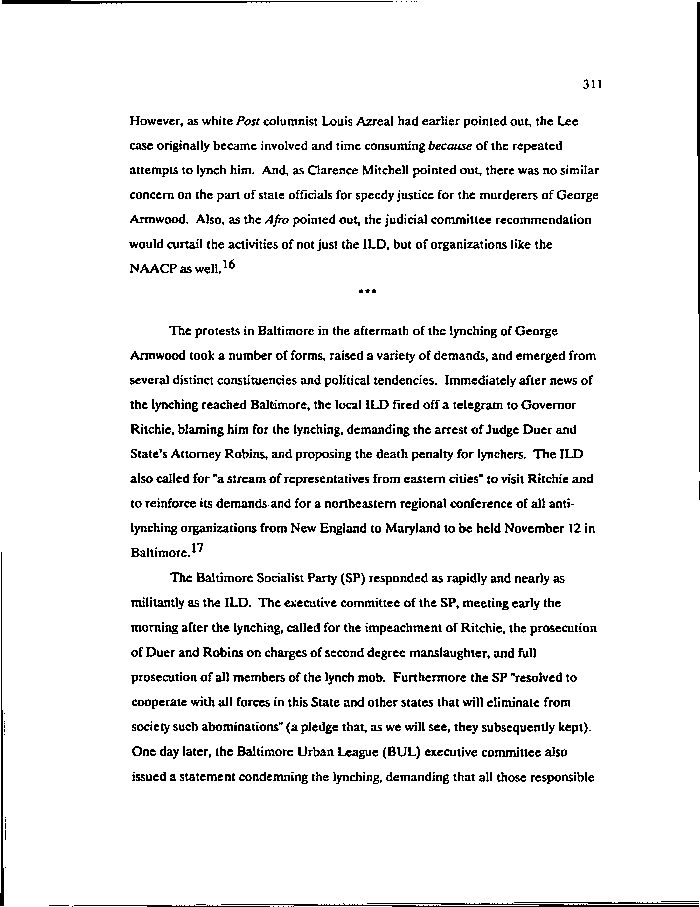|
311
However, as white Post columnist Louis Azreal had earlier pointed out, the Lee
case originally became involved and time consuming because of the repeated
attempts to lynch him. And, as Clarence Mitchell pointed out, there was no similar
concern on the pan of state officials for speedy justice for the murderers of George
Armwood. Also, as the Afro pointed out, the judicial committee recommendation
would curtail the activities of not just the ILD, but of organizations like the
NAACPaswell.16
The protests in Baltimore in the aftermath of the lynching of George
Armwood took a number of forms, raised a variety of demands, and emerged from
several distinct constituencies and political tendencies. Immediately after news of
the lynching reached Baltimore, the local ILD fired off a telegram to Governor
Ritchie, blaming him for the lynching, demanding the arrest of Judge Duer and
State's Attorney Robins, and proposing the death penalty for lynchers. The ILD
also called for "a stream of representatives from eastern cities" to visit Ritchie and
to reinforce its demands and for a northeastern regional conference of all anti-
lynching organizations from New England to Maryland to be held November 12 in
Baltimore.*'
The Baltimore Socialist Party (SP) responded as rapidly and nearly as
militantly as the ILD. The executive committee of the SP, meeting early the
morning after the lynching, called for the impeachment of Ritchie, the prosecution
of Duer and Robins on charges of second degree manslaughter, and full
prosecution of all members of the lynch mob. Furthermore the SP "resolved to
cooperate with all forces in this State and other states that will eliminate from
society such abominations" (a pledge that, as we will see, they subsequently kept).
One day later, the Baltimore Urban League (BUL) executive committee also
issued a statement condemning the lynching, demanding that all those responsible
|

